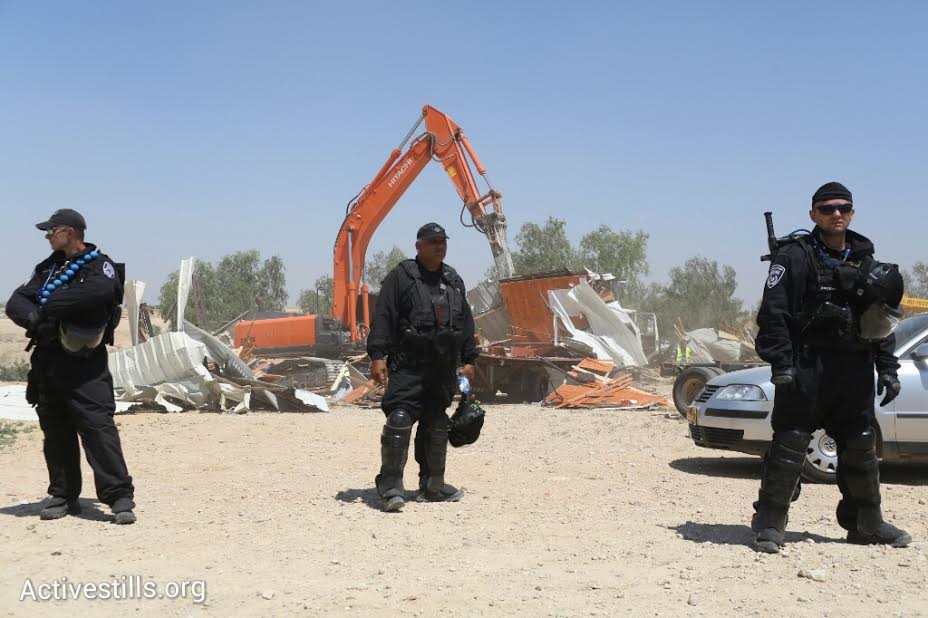Israel denies Bedouin citizens basic services in life but claims them as civilians when they die.
Over 400 Palestinians have been killed since Israel began its current military operation in Gaza. According to the United Nations, approximately three-quarters of Gaza’s dead are civilians; many are children.
In Israel, two civilians have been killed. One was a Bedouin, the 32-year-old Oudi Lafi al-Waj, who lived in an unrecognized village in the Negev (Naqab) desert, near Dimona. Several Bedouin children have also been injured by rocket fire since Israel began “Operation Protective Edge.”
Bedouin villages do not have air raid sirens, nor are they covered by Iron Dome. They also lack bomb shelters.

In the wake of al-Waj’s death, the Association for Civil Rights in Israel, a non-governmental organization, “submitted an urgent request” this morning to the Israeli High Court for an answer on the petition the organization filed last week requesting that the state provide bomb shelters for the Bedouin.
But in a Sunday hearing at Israel’s High Court, the “state expressed its position that there is no need to provide additional protective facilities to these communities, and advised the Bedouin residents to protect themselves by lying on the ground,” ACRI reports. The organization added that “officials claimed that protecting the Bedouin villages was a low priority.”
Read +972′s coverage of the latest round of violence
Responding to today’s hearing, ACRI Attorney Auni Banna remarked:
State officials completely disregarded the fact that in villages where there are no shelters, no sirens, and where the houses are built mostly of aluminum – a falling rocket is exponentially more dangerous. The state’s conduct conveys a sense of how they distinguish one type of blood from another, and the abandonment of the Bedouin in the unrecognized villages.
While the High Court declined to take immediate action on the matter, it did request that the respondents–Regional Councils and the Ministry of Justice–respond to concerns raised in the petition about the villages’ infrastructure within 30 days.
This is not the first time that Israel’s highest court has failed to protect the most basic human rights of the country’s Bedouin citizens. In 2013, the Israeli High Court rejected a petition from the NGO Adalah requesting that the state provide water to the unrecognized Bedouin village Umm al Hiran.
Residents of Umm al Hiran must travel four kilometers to buy water from a citizen who charges “exorbitantly high prices,” according to Adalah.
The High Court’s 2013 ruling denying Umm al Hiran access to the national water network “contradicts the Supreme Court’s 2011 decision in which it held that the right to water is a constitutional right and that the Arab Bedouin living in the Naqab… have the right to “minimal access to water,” Adalah pointed out.
Now, Israel wants to include a Bedouin man in its civilian casualty toll.
But Israel claims al-Waj in death only. And the state will surely exploit his death to justify its military operation in Gaza. But in life, in Israel, al-Waj was less than a civilian. He was just a Bedouin—not worthy of basic services or even shelter against rockets.
Related:
Israel, state of all its victims
PHOTOS: A life of discrimination for Negev Bedouin
How can you possibly oppose this war?


